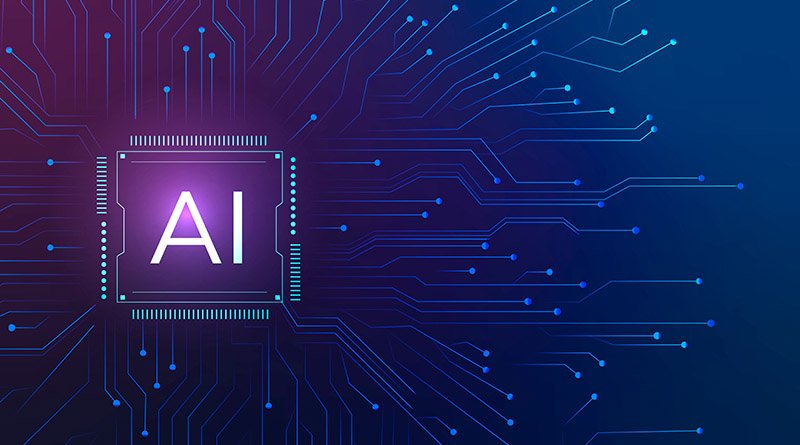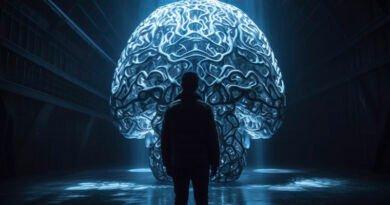What is artificial intelligence and how it is transforming the world
|
Getting your Trinity Audio player ready...
|
Artificial Intelligence (AI) is one of the most promising technologies today, capable of transforming various sectors and human activities. It involves the creation of systems capable of performing tasks that, until then, were considered exclusive to human intelligence, such as learning, reasoning, making decisions and interacting with the environment.
In this article, we will explore what artificial intelligence is, how it is being used in different areas and how it is transforming the world.
What is artificial intelligence?
Artificial intelligence is a branch of computer science that is concerned with creating systems capable of performing tasks that, until then, were considered exclusive to human intelligence. These systems can be classified into three types:
– Reactive AI: systems that use algorithms to make decisions based on specific information, without taking into account context or the past;
– Memory-based AI: systems that use information stored in a memory to make decisions;
– Learning-based AI: systems that are capable of learning from data and improving their decisions over time.
How is artificial intelligence being used?
Artificial intelligence is being used in several areas, from healthcare to the automotive industry. In healthcare, AI is being used to assist in the diagnosis and treatment of diseases, in addition to facilitating the management of hospitals and clinics. In the automotive industry, AI is being used to develop autonomous cars, capable of driving themselves and avoiding accidents.
In the financial area, AI is being used to analyze risk and fraud, as well as helping to develop more efficient investment systems. In education, AI is being used to create personalized learning systems that adapt to the pace and needs of each student. In agriculture, AI is being used to monitor plant growth and predict yields.
How is artificial intelligence transforming the world?
Artificial intelligence is transforming the world in many ways. It is enabling companies to develop more efficient and personalized products and services, as well as reducing costs and increasing productivity.
There are many artificial intelligence (AI) applications available today, with some being more popular and influential than others. Here are some examples of AI applications that are having a big impact today:
Personal assistant
Personal assistants, such as Siri, Alexa and Google Assistant, use AI to understand and respond to users' questions, provide information and perform tasks.
Speech recognition
Speech recognition is a feature used in many AI applications, such as virtual assistants, language translators, and speech-to-text transcription programs.
Image recognition
Image recognition is used in applications that allow you to identify objects in images or videos, such as Google Lens.
Fraud detection
AI is often used to detect fraudulent activity in financial and commercial transactions, helping to prevent losses for businesses and consumers. Furthermore, AI is helping to create more efficient investment systems.
Product recommendations
Product recommendation algorithms, such as those used by Amazon It is Netflix, use AI to analyze users' purchase and viewing history, as well as provide personalized recommendations.
Medicine
AI is used in medicine to help diagnose and treat diseases, as well as analyze large amounts of healthcare data to identify trends and patterns, and also in the management of hospitals and clinics.
Autonomous cars
AI is fundamental to the operation of autonomous cars, allowing vehicles to “think” and make driving decisions based on data from the environment around them. Thus, the use of AI promises to reduce the number of traffic accidents and improve urban mobility.
ChatGPT
ChatGPT is an artificial language model developed by OpenAI that uses neural network technology to generate natural language responses to a wide range of questions and statements. The model is based on the GPT (Generative Pre-trained Transformer) architecture, which was trained on a large amount of textual data to learn to predict the words and phrases that are likely to follow a given context. This allows the ChatGPT Intelligently respond to questions and statements using a natural language generation engine that allows responses to appear as if they were produced by a human.
The app is capable of understanding and answering questions on a wide range of topics, from science and technology to entertainment and sports. It can be used in various applications, including virtual assistants, chatbots, content recommendation systems, and social media sentiment analysis. The model is highly scalable and can be adapted to different contexts and needs.
However, it is important to note that ChatGPT, like other forms of AI, has limitations and challenges. It can be influenced by biases and stereotypes present in the training data, which can lead to discriminatory or offensive responses. Additionally, the model may not be able to fully understand the complexity or nuances of certain topics or situations. Therefore, it is important to use ChatGPT and other AI technologies with caution and responsibility.
The challenges of artificial intelligence
Despite the numerous benefits of artificial intelligence, it also presents several challenges. One of the main ones is the issue of ethics and data privacy. With the advancement of AI, companies are collecting more and more information about users, which raises concerns about how this data is used and protected. Furthermore, there is also concern about the possibility of AI being used for malicious purposes, such as manipulating information or even cyber attacks.
Another important challenge is the issue of algorithmic bias. Because AI systems are based on historical data, they can reflect and amplify existing biases and inequalities in society. This can lead to discriminatory decisions, such as the facial recognition system, for example.
Finally, there is also the issue of replacing jobs with AI systems. Although AI can increase the efficiency and productivity of companies, it can also lead to the loss of jobs in areas that were previously exclusive to humans, which can generate significant social and economic impacts.
Conclusion
Artificial intelligence is a technology that is transforming the world in many ways. It is being used in areas such as healthcare, finance, education and agriculture, allowing companies to develop more efficient and personalized products and services.
However, AI also presents important challenges, such as the issue of data ethics and privacy, algorithmic bias, and job replacement. It is important that these challenges are addressed responsibly and transparently, to ensure that AI can continue to contribute to human progress in a safe and sustainable way.




Pingback: Artificial Intelligence for Customer Service - MktConteudo
Pingback: Bard: Google's artificial intelligence - MktConteudo
Pingback: Bing AI: how artificial intelligence works - MktConteudo
Pingback: ChatGPT: what it is, how it works and how to use it - MktConteudo
Pingback: What is Generative Artificial Intelligence? - MktConteudo
Pingback: What is Google DeepMind - MktConteudo
Pingback: Meta AI: How it works - MktConteudo
Pingback: What is marketing 5.0 and how to apply it to your strategies - MktConteudo
Pingback: Customer loyalty: the role of digital marketing - Vero Contents
Pingback: Gemini: the evolution of Bard, from Google - MktConteudo
Pingback: What is Google Meridian and how it can help marketing - Vero Contents
Pingback: Digital Marketing Trends for Small Businesses in 2024 - MktConteudo
Pingback: O que é Page Experience e como afeta o SEO - Vero Contents